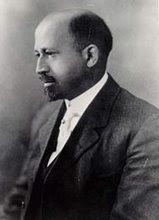 Today has seen another attack by Somalian pirates, this time a US vessel with 20 crew on board, during a night time attack. It was seized in the Indian Ocean about 500 kms from capital Mogadishu. It is the sixth seizure in recent days, including a British and Taiwanese ship. Pirates typically hold the ships and crews until large ransoms are paid by the shipping companies - last year the firms handed over about £80m (£54m).
Today has seen another attack by Somalian pirates, this time a US vessel with 20 crew on board, during a night time attack. It was seized in the Indian Ocean about 500 kms from capital Mogadishu. It is the sixth seizure in recent days, including a British and Taiwanese ship. Pirates typically hold the ships and crews until large ransoms are paid by the shipping companies - last year the firms handed over about £80m (£54m).It is believed to be the first ship with Americans on board to be hijacked in recent times. The task force, consisting of six ships and two planes, is among almost a dozen anti-piracy patrols in the area. But pirates managed to seize 15 ships last month - a large increase on the two taken in January and February. More than 130 pirates attacks, including close to 50 successful hijackings, were reported in 2008, threatening one of the world's busiest shipping lanes
Why are pirates getting away with it?
The pirates have responded in the past few weeks by switching the focus of their attacks further out into the Indian Ocean.
In January 2009 Somali pirates freed the Saudi supertanker whose capture two months earlier drew the world's attention to the surge in piracy off the Horn of Africa.
Since the seizure of the Sirius Star, global navies have been rushing to protect one of the world's most important shipping lanes.
Major powers have been also been debating a long-term solution to the hijackings in what have become the most dangerous waters in the world - accounting for a third of all pirate attacks.
How do the pirates seize the ships?
The pirates are very good at what they do. They run sophisticated operations using the latest hi-tech equipment such as satellite phones and GPS. They use speedboats with very powerful outboard motors to approach their target. Sometimes the speedboats are launched from much larger "mother ships" on the high seas.
To actually hijack the ships, the pirates first use grappling hooks and irons - some of which are even rocket-propelled - and climb aboard using ropes and ladders. The pirates have also on occasion fired at the ships to scare them into stopping, so it is easier for them to board the vessel.
The pirates then sail the hijacked ship to the Somali pirate hub town, Eyl. There, pirates usually take the hostages ashore where they are normally well-looked after until a ransom is paid.
Why can't the pirates be stopped?
Warships from at least nine countries are now operating in the Gulf of Aden and the waters off Somalia, but this may have only shifted the problem. The Sirius Star was attacked a long way south of Somalia. The targeted area now encompasses over a quarter of the Indian Ocean and so is impossible to police. The International Maritime Bureau is advising ship-owners to adopt measure such as having look-outs or travelling at speeds which would allow them to outrun the pirates. However, the pirates move extremely quickly and often at night and so it is often too late before the crew has realised what has happened. Once the pirates have taken control of a ship, military intervention is complicated because of the hostages on board.
There is also no international legal system for people accused of piracy, although some have been put on trial in Kenya, while one group was captured by French forces and taken to face justice in France. Some argue an international court is needed, backed by the UN, with perhaps even an international prison for those convicted.
In 2008, French commandos detained Somali 'pirates' soon after the release of 30 hostages. In mid-December 2008, the UN Security Council approved a resolution allowing countries to pursue Somali pirates on land as well as at sea - an extension of the powers countries already have to enter Somali waters to chase pirates.
But as long as Somalia continues to exist without an effective government, many believe lawlessness within the country and off its lengthy coast will only grow.
The pirates treat the ship, its cargo and its crew as hostages and hold them for ransom. The rewards they receive are rich in a country where there are no jobs and almost half the population needs food aid after 17 years of non-stop conflict.
The Kenyan foreign minister estimates that pirates have received $150m in the past year in ransom payments. They use some of this money to fund future operations - more powerful weapons, bigger, faster boats and more sophisticated equipment.
Piracy is estimated to have cost the world an estimated $60 - 70m in 2008.
tspoonfr










No comments:
Post a Comment